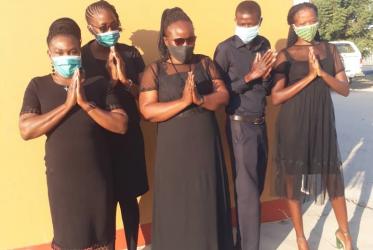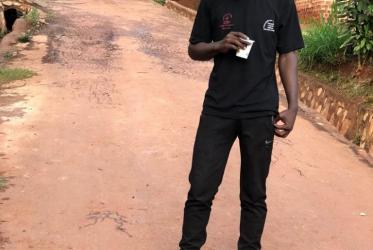Displaying 41 - 60 of 132
WCC mourns passing of Hendrew Lusey-Gekawaku
23 October 2020
Healing Together
A Facilitator’s Resource for Ecumenical Faith and Community-Based Counselling
15 October 2020
Thursdays in Black is growing in Namibia
20 August 2020
Young people in Togo: “Hear our voice! We want to tell our stories!”
07 November 2019
Youth leaders: “We will stop at nothing” to end HIV and violence
17 October 2019














